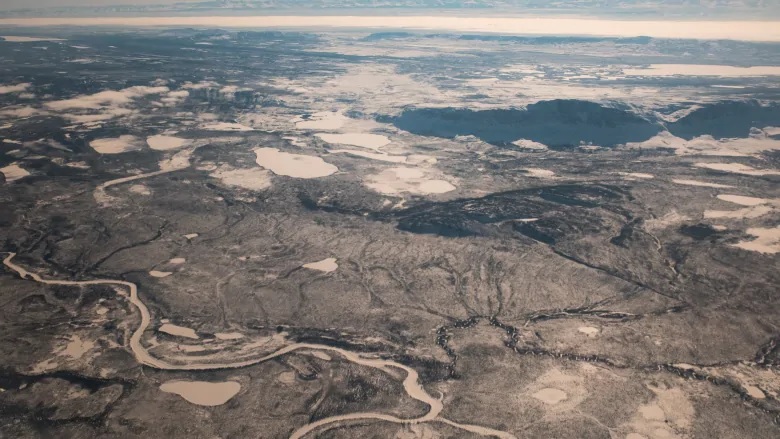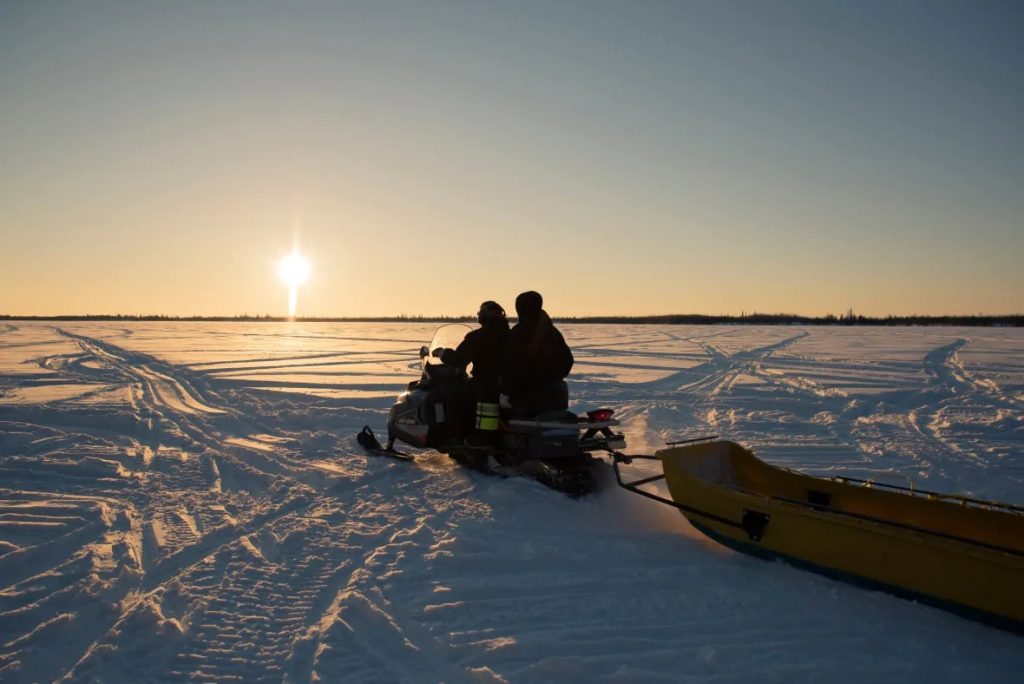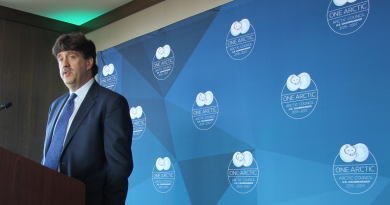Indigenous community in Northern Canada celebrates new protected area

People in Fort Good Hope, N.W.T., are gathering to celebrate a major victory for their community: the establishment of the Ts’udé Nilįné Tueyata protected area.
The establishment agreement to protect the area near the community is being officially signed today.
Ts’udé Nilįné Tueyata, known in English as the Ramparts River and Wetlands, is a sacred site for K’asho Got’ı̨nę people in Fort Good Hope. At 10,000 square kilometres, it’s nearly twice the size of Prince Edward Island.
“The protected area represents our way of life. It represents our home,” explained Isidore Manuel, one of the leaders behind the project.
“It’s a real beautiful area where people go up every year, we like being there. Even if we don’t end up getting a moose or caribou, it’s a good feeling whenever we’re there,” he said.
Elders have long wanted to protect this land from oil and gas development, but the negotiations only began in earnest over the past year and a half.
In August, community members voted 93-54 to ratify the establishment agreement that had been reached by the territorial government, Fort Good Hope Métis Land Corporation #54, the Fort Good Hope Dene Band, and the Yamoga Land Corporation.
But it wasn’t immediately signed by leadership.
Community negotiator Stephen Kakfwi sounded the alarm over that. He was concerned the delays put about $1 million set aside for an Indigenous guardianship program at risk.
At the time, Edwin Erutse, the president of the Yamoga Land Corporation, said he was responsible for the hold up. He said he wanted to make sure all of the community’s leaders were consulted on the deal.
He’s since signed on and now says he’s happy with the deal.
“I always wanted to ensure the chiefs have a seat at the table and are always involved in the decision-making, now and into the future,” Erutse said. “We’re happy on achieving that.”
A win for the community
On Monday, a spokeswoman for the territorial government confirmed the territory and K’asho Got’ı̨nę received $6.2 million from the federal government’s Canada Nature Fund for the protected area for the next four years.

Part of that money will pay for community-led stewardship and guardians programming, which will be developed soon, Erutse said.
Overall, establishing the protected area is a win for the community going forward, he said.
“It’s been long overdue, I’m hoping that everybody in the community will come join us in the band hall for our local celebration,” Erutse said.
For Manuel, this is about the community coming together to finally protect land that is of the utmost importance to them.
“People really spoke to the leadership and told them they wanted this protected area to go ahead,” Manuel said. “Band leadership, Yamoga leadership, they held one last assembly and the people told them to go ahead.
“It was a real consensus from the community,” he said. “Things kind of worked out in the end.”
Related stories from around the North:
Canada: Final agreement signed to protect Peel watershed in northwestern Canada, CBC News
Norway: Deal protects Arctic waters around Svalbard, Norway from fishing, The Independent Barents Observer
Russia: Old taiga forest in northwest Russia now a nature reserve, The Independent Barents Observer
United States: U.S. government signs new land swap for Alaskan wildlife refuge road, Alaska Public Media



